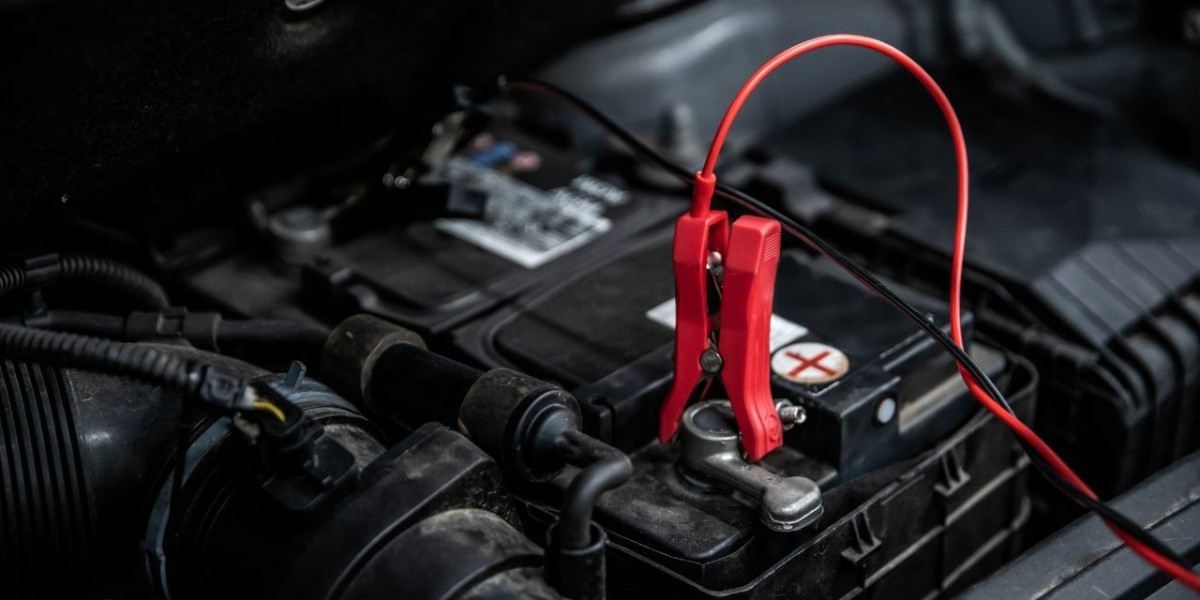Have you ever turned your car key and heard nothing but silence? That unsettling moment highlights how vital your car battery is. It’s the heart of your vehicle’s electrical system, powering everything from the ignition to headlights, sensors, and onboard computers. Selecting the best car battery ensures your vehicle starts reliably every time and performs efficiently under all conditions.
But with so many battery types, brands, and technologies available, how do you know which one is the right fit for your car? Understanding the key features, performance indicators, and long-term benefits will help you make an informed decision. This article explains what makes a car battery the best choice for your vehicle, the role it plays in performance, and how to evaluate car battery prices to ensure lasting value.
Understanding the Role of a Car Battery
A car battery isn’t just a power source—it’s the foundation of your car’s electrical system. It provides the energy to start the engine and powers vital systems when the engine is off. In modern vehicles equipped with infotainment systems, sensors, and electric components, a high-quality battery is essential for optimal performance.
Statistics from the Battery Council International show that over 35% of vehicle breakdowns are related to battery failure. This demonstrates why choosing the best car battery is more than just a purchase—it’s an investment in reliability and safety.
What Defines the Best Car Battery
Not all batteries are created equal. The best car batteries share certain characteristics that ensure durability, reliability, and consistent performance.
1. Compatibility with Your Vehicle
The most important factor is compatibility. Every vehicle has specific requirements for voltage, size, and terminal placement. Check your owner’s manual to identify the right group size and specifications. Installing a battery that doesn’t fit properly can cause electrical faults or damage to your car’s systems.
2. High Cold Cranking Amps (CCA)
Cold Cranking Amps (CCA) measure the battery’s ability to start an engine in low temperatures. The higher the CCA, the better the battery performs in cold weather. For drivers in colder climates, this is a critical performance indicator when selecting the best car battery.
3. Adequate Reserve Capacity (RC)
Reserve capacity indicates how long the battery can provide power if the alternator fails. A higher RC ensures your car can keep running electrical components such as headlights or air conditioning even in emergencies.
4. Maintenance-Free Design
Modern car batteries often come in sealed, maintenance-free designs that don’t require electrolyte top-ups. These models provide convenience and longevity, especially for drivers who prefer low-maintenance solutions.
5. Strong Warranty Support
A reliable warranty reflects the manufacturer’s confidence in the product. The best car batteries come with extended warranties, offering peace of mind and protection against unexpected failures.
Types of Car Batteries and Their Advantages
Understanding the available types of car batteries helps you make a more informed choice.
Lead-Acid Batteries
These are traditional, cost-effective batteries found in many standard vehicles. While affordable, they require periodic maintenance and don’t perform as well in extreme climates.
Absorbent Glass Mat (AGM) Batteries
AGM batteries are more advanced, offering higher power output and resistance to vibration. They charge faster and last longer than conventional lead-acid batteries. Vehicles with start-stop systems or high electronic demands benefit from AGM technology.
Gel Batteries
Gel batteries use a gel-based electrolyte that prevents leakage and reduces maintenance. They are ideal for off-road or high-vibration conditions, providing reliable performance in harsh environments.
Lithium-Ion Batteries
Lightweight and efficient, lithium-ion batteries are commonly used in electric and hybrid vehicles. They offer excellent power retention and a longer lifespan but are generally more expensive.
The Impact of Climate on Battery Performance
Climate plays a significant role in determining how well your car battery performs.
Hot Weather
High temperatures accelerate chemical reactions, causing electrolyte evaporation and reducing battery life. The best car battery for hot climates should have built-in heat resistance to prevent premature failure.
Cold Weather
In cold conditions, battery power output can drop significantly. Choosing a battery with high CCA ratings ensures consistent engine starts even in freezing temperatures.
Humid or Coastal Areas
Humidity increases the risk of corrosion. For drivers in coastal or humid regions, corrosion-resistant batteries with sealed designs offer better protection and durability.
Evaluating Car Battery Quality
Battery Life Expectancy
A quality car battery should last between three to five years under normal conditions. Factors such as climate, driving habits, and maintenance can affect this lifespan.
Brand Reputation
Reputable brands like Varta, Amaron, Exide, and Panasonic are known for manufacturing long-lasting, dependable batteries. Choosing a well-known brand ensures you’re buying a tested and proven product.
Performance Standards
Always check for international quality certifications such as ISO 9001 or standards set by the Battery Council International. These certifications indicate that the battery has undergone rigorous testing.
Understanding Car Battery Prices
When comparing car battery prices, it’s essential to consider value rather than cost alone. A lower-priced battery may save you money upfront, but frequent replacements or poor performance can lead to higher long-term expenses.
Factors that influence car battery prices include:
- Technology Type: AGM and lithium-ion batteries are more advanced, affecting cost.
- Brand and Manufacturing Origin: Premium brands often cost more due to superior quality control.
- Capacity and Features: Higher reserve capacity and safety features may increase price but offer better performance.
- Warranty Duration: Batteries with longer warranties usually have higher prices but offer greater assurance.
The goal is to balance quality, lifespan, and reliability when selecting a battery.
How to Choose the Right Battery for Your Vehicle
Selecting the best car battery involves more than just checking the specifications. Here’s a step-by-step guide to help you make the right decision.
Step 1: Identify Your Car’s Requirements
Consult your vehicle’s manual to determine the correct battery group size, power rating, and terminal position.
Step 2: Assess Your Driving Habits
If you mostly drive short distances, choose a battery with a higher charging capacity, as short trips prevent full charging. For long highway drives, standard models may suffice.
Step 3: Compare Performance Ratings
Look for batteries with higher CCA and RC ratings suitable for your region’s weather.
Step 4: Choose a Trusted Retailer or Service Center
Purchase from authorized retailers that offer certified batteries and professional installation. Trusted suppliers like AutoTaLab Car Battery provide a range of high-quality options that meet diverse vehicle needs.
Step 5: Verify the Manufacturing Date
Batteries lose efficiency over time, even when unused. Always select a battery manufactured within the last six months for optimal performance.
Common Mistakes to Avoid When Buying a Battery
- Focusing Only on Price: Cheaper options might lack durability or consistent performance.
- Ignoring Compatibility: Installing the wrong battery size or type can damage electrical systems.
- Neglecting Warranty Terms: Always review warranty coverage to understand what is included.
- Skipping Professional Installation: Improper installation may shorten battery life or affect performance.
- Delaying Replacement: Waiting until the battery completely fails can leave you stranded.
Expert Maintenance Tips for Battery Longevity
Keep Terminals Clean
Corrosion on terminals can disrupt current flow. Clean terminals regularly using a mixture of baking soda and water.
Drive Frequently
Frequent use keeps the battery charged. If the car is idle for long periods, use a battery maintainer to preserve charge.
Avoid Electrical Overload
Don’t use high-powered accessories when the engine is off, as this drains the battery faster.
Inspect for Damage
Check for cracks, leaks, or bulges. Any physical damage indicates it’s time for replacement.
Monitor Battery Health
Modern vehicles often have diagnostic systems that alert you to voltage issues. Regular testing helps detect problems early.
Environmental Considerations
Car batteries contain lead, acid, and other materials that can harm the environment if not disposed of correctly. Fortunately, over 95% of a lead-acid battery is recyclable. Always return your old battery to a certified recycling facility to minimize environmental impact and promote sustainability.
Signs It’s Time to Replace Your Battery
- Engine cranks slowly or fails to start.
- Headlights dim noticeably.
- Dashboard battery light remains on.
- You notice corrosion or a swollen battery case.
- The battery is more than three years old.
Replacing your battery before total failure ensures uninterrupted performance and prevents damage to your car’s electrical systems.
Future Trends in Car Battery Technology
The future of automotive power storage is evolving rapidly. Advancements in lithium-ion and solid-state battery technology are expected to revolutionize how vehicles store and use energy.
Manufacturers are developing smart car batteries that can monitor their own health and communicate real-time data to the driver. These innovations aim to increase battery lifespan and reduce environmental impact. As technology advances, car battery prices may fluctuate, but overall performance and reliability will continue to improve.
Conclusion
The best car battery combines durability, performance, and compatibility with your vehicle’s specific needs. It’s not just about starting your engine—it’s about ensuring consistent, dependable power for all your vehicle’s systems. By understanding the features that define a high-quality battery and how car battery prices vary with technology and performance, you can make a smart investment that supports long-term vehicle reliability.
A good car battery means more than just convenience—it’s a safeguard for your vehicle’s efficiency and your peace of mind. Choose wisely, maintain regularly, and your car will always be ready to power up when you need it most.













